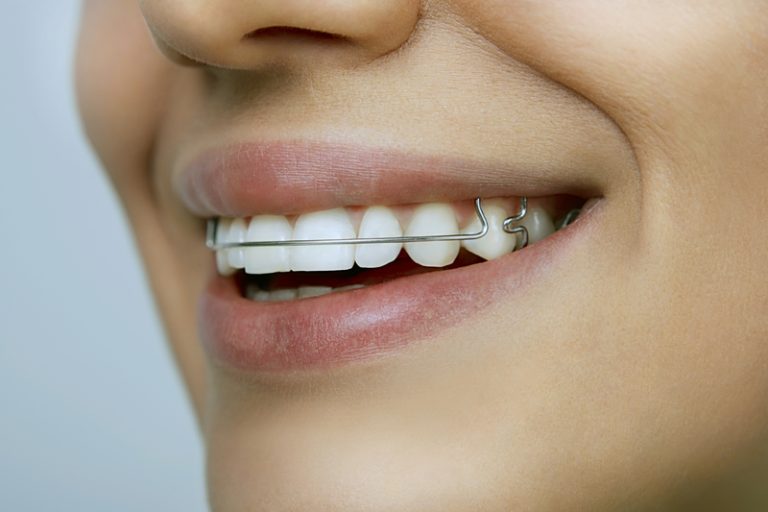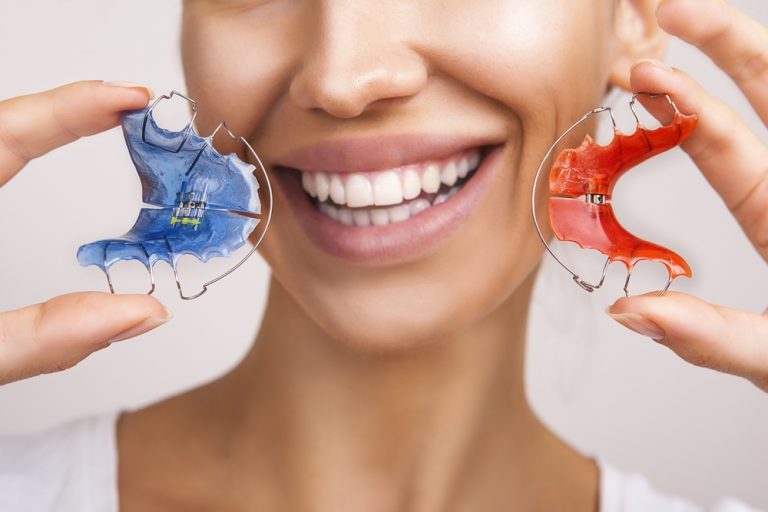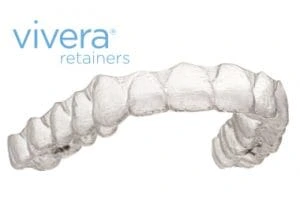Ultrasonic Cleaner for Retainers: Ultimate Hygiene Solution
Last Updated on 3 days by DR. ALBIN SIPES
An ultrasonic cleaner for retainers is a must-have for oral hygiene. It uses sound waves to clean retainers thoroughly.
Retainers need regular cleaning to remove plaque, bacteria, and food particles. Traditional cleaning methods can be tedious and less effective. Ultrasonic cleaners offer a quick and efficient solution. These devices use high-frequency sound waves to create tiny bubbles. These bubbles reach every nook and cranny of your retainer, ensuring a deep clean.
Unlike manual brushing, ultrasonic cleaners can remove stubborn buildup without damaging the retainer. This method not only saves time but also enhances the lifespan of your retainer. Investing in an ultrasonic cleaner can make maintaining oral hygiene easier and more effective. Let’s explore how these devices work and their benefits.

Introduction To Ultrasonic Cleaners
Retainers need regular cleaning to remove bacteria and plaque. An ultrasonic cleaner can make this task easier. It uses sound waves to clean the retainers thoroughly. In this section, we will explore what ultrasonic cleaners are and how they work.
What Are Ultrasonic Cleaners?
Ultrasonic cleaners are devices that use high-frequency sound waves. These sound waves create tiny bubbles in a liquid. The bubbles burst and remove dirt from objects. This process is called cavitation.
These cleaners are popular in the dental field. They are also used in other industries like jewelry and electronics. Their ability to clean delicate items without damage is valuable.
How They Work
Ultrasonic cleaners have a tank that holds a cleaning solution. The object to be cleaned, like a retainer, is placed in this tank. When the cleaner is turned on, sound waves are generated. These sound waves create microscopic bubbles in the liquid.
The bubbles implode, creating a gentle scrubbing action. This scrubbing action reaches every part of the retainer. It removes dirt, plaque, and bacteria effectively. The process is usually quick, taking just a few minutes.
Here is a simple table to summarize the process:
| Step | Action |
|---|---|
| 1 | Place retainer in tank |
| 2 | Add cleaning solution |
| 3 | Turn on the ultrasonic cleaner |
| 4 | Sound waves create bubbles |
| 5 | Bubbles implode and clean the retainer |
| 6 | Remove and rinse the retainer |
Using an ultrasonic cleaner for your retainer is simple. It ensures your retainer is clean and free of bacteria. This helps maintain oral hygiene and extends the life of your retainer.
Benefits Of Ultrasonic Cleaners
Ultrasonic cleaners are essential for maintaining retainers. They offer many benefits, making them a preferred choice for dental hygiene. Let’s explore the advantages of using ultrasonic cleaners for retainers.
Deep Cleaning
Ultrasonic cleaners use high-frequency sound waves. These waves create tiny bubbles that gently scrub your retainers. This process removes plaque and bacteria from every nook and cranny. Manual cleaning can’t reach these tiny spaces. An ultrasonic cleaner ensures a thorough clean every time.
Time Efficiency
Cleaning retainers by hand can be time-consuming. An ultrasonic cleaner speeds up this process. Place your retainer in the cleaner, add some water, and turn it on. In a few minutes, your retainer is spotless. There’s no need to spend a long time scrubbing. This gives you more time for other activities.
Gentle On Retainers
Retainers are delicate and need careful handling. Using a brush can cause scratches or damage. Ultrasonic cleaners are gentle. They clean without causing any harm. This extends the lifespan of your retainer. It keeps them looking new and functional for longer.
In summary, ultrasonic cleaners offer deep cleaning, save time, and are gentle on retainers. They are a smart investment for anyone with retainers.
Choosing The Right Ultrasonic Cleaner
Selecting the right ultrasonic cleaner for your retainers is crucial. It ensures thorough cleaning and extends the lifespan of your dental devices. This guide will help you make an informed decision.
Key Features To Look For
When choosing an ultrasonic cleaner, consider these key features:
- Frequency: Higher frequencies provide better cleaning for delicate items.
- Tank Size: Ensure the tank can accommodate your retainers comfortably.
- Timer Settings: Timers allow you to set precise cleaning durations.
- Heating Function: Heated cleaning solutions enhance cleaning efficiency.
- Material: Stainless steel tanks are durable and resistant to corrosion.
Top Brands And Models
Here are some top brands and models worth considering:
| Brand | Model | Key Features |
|---|---|---|
| iSonic | P4820-WPB | Heated tank, digital timer, large capacity |
| Magnasonic | MGUC500 | Compact design, 42,000 Hz frequency, 5 preset cleaning cycles |
| Ultrasonic Power Corporation | UC-300 | Industrial-grade, adjustable power and frequency, stainless steel tank |
Step-by-step Cleaning Process
Keeping your retainers clean is essential for oral hygiene. An ultrasonic cleaner offers an efficient way to maintain your retainers. Follow this step-by-step guide for the best results.
Preparing The Cleaner
Before starting, gather your materials. You’ll need the ultrasonic cleaner, water, and a mild cleaning solution.
- Fill the cleaner’s tank with water. Ensure you don’t overfill it.
- Add a few drops of the cleaning solution to the water.
- Place your retainers into the cleaner’s basket.
- Insert the basket into the cleaner’s tank.
Now, your cleaner is ready for the next step.
Cleaning Cycle
Set the cleaner’s timer. For retainers, a 5-minute cycle usually works well.
- Turn on the cleaner and start the cycle.
- During the cycle, the ultrasonic waves will remove debris and bacteria.
- Wait until the cycle completes.
After the cycle, your retainers should be clean and fresh.
Post-cleaning Care
Once the cycle finishes, remove the basket from the cleaner.
- Rinse your retainers with clean water to remove any residue.
- Dry your retainers using a soft, clean cloth.
- Store your retainers in a clean, dry case.
Proper care extends the life of your retainers and ensures they remain effective.
Comparing With Traditional Cleaning Methods
Retainers require regular cleaning to maintain oral hygiene. Traditional cleaning methods include manual cleaning and chemical cleaners. Let’s compare these methods with ultrasonic cleaners.
Manual Cleaning
Manual cleaning involves brushing the retainers with a toothbrush and toothpaste. This method can remove surface debris. But it may not reach all the nooks and crannies. Brushing too hard can also scratch the retainers. This can lead to bacteria buildup in the scratches.
Ultrasonic cleaners, on the other hand, use sound waves to create tiny bubbles. These bubbles clean every corner of the retainers without damaging them. This process is more effective and gentle compared to manual cleaning.
Chemical Cleaners
Chemical cleaners include tablets or solutions that dissolve in water. Retainers are soaked in this solution to remove stains and bacteria. But these cleaners can have strong chemicals. They may leave a residue or an unpleasant taste on the retainers.
Ultrasonic cleaners do not use harsh chemicals. They rely on water and sound waves to clean. This makes them a safer option for daily use. Plus, they can clean faster compared to soaking in chemical solutions.
Here is a quick comparison:
| Cleaning Method | Pros | Cons |
|---|---|---|
| Manual Cleaning | Simple, Inexpensive | Can miss spots, May scratch retainers |
| Chemical Cleaners | Effective, Easy to use | Strong chemicals, May leave residue |
| Ultrasonic Cleaners | Thorough, Gentle, No chemicals | Initial cost, Requires power |

Maintenance Tips For Ultrasonic Cleaners
Keeping your ultrasonic cleaner for retainers in excellent condition ensures it lasts longer and works effectively. Proper maintenance not only guarantees optimal performance but also extends the lifespan of your device. Below are some essential tips to maintain your ultrasonic cleaner.
Regular Cleaning
Regular cleaning of your ultrasonic cleaner is crucial. Here’s a simple guide:
- After each use, empty the tank and rinse it with clean water.
- Use a soft cloth to wipe the inside of the tank.
- Once a week, use a mild detergent to clean the tank thoroughly.
- Always follow the manufacturer’s instructions for cleaning.
Proper Storage
Storing your ultrasonic cleaner correctly helps in maintaining its functionality. Follow these steps:
- Ensure the tank is dry before storage.
- Store the cleaner in a cool, dry place.
- Keep it away from direct sunlight and heat sources.
- Cover the unit to protect it from dust and debris.
Troubleshooting Common Issues
Even with proper maintenance, you might face some issues. Here are some common problems and solutions:
| Issue | Possible Cause | Solution |
|---|---|---|
| No power | Check the power cord and outlet. | Ensure the unit is properly plugged in. |
| Poor cleaning | Low ultrasonic activity. | Check and clean the transducer. |
| Strange noises | Loose parts or debris. | Inspect and tighten any loose parts. |
Regular maintenance and proper care ensure your ultrasonic cleaner operates smoothly and effectively. Following these tips will help you get the best results from your device.
User Testimonials And Reviews
Many users have shared their experiences with ultrasonic cleaners for retainers. Their feedback helps others make informed decisions. These testimonials highlight the effectiveness, ease of use, and overall satisfaction. Let’s dive into some common themes from user reviews.
Success Stories
Users often share their positive experiences with ultrasonic cleaners. They highlight how the device has simplified their cleaning routine.
- Emma: “My retainer has never been this clean! The ultrasonic cleaner removed stains I couldn’t with a brush.”
- John: “Using this cleaner daily has kept my retainer fresh and odor-free. It’s a must-have.”
- Sophia: “I used to dread cleaning my retainer. Now it’s quick and easy.”
These success stories show that ultrasonic cleaners can make a big difference. They offer a convenient and effective way to maintain retainer hygiene.
Common Concerns
While many users love their ultrasonic cleaners, some have concerns. These often relate to device functionality and maintenance.
| Concern | Details |
|---|---|
| Noise Level | Some users find the device noisy. They recommend using it in another room. |
| Cleaning Effectiveness | A few users report that tough stains need multiple cleanings. |
| Durability | Some devices may stop working after months of use. Warranty helps. |
Understanding these concerns helps potential buyers make better choices. It also highlights the importance of proper maintenance and realistic expectations.

Conclusion
Ultrasonic cleaners are perfect for maintaining clean retainers. They remove debris efficiently. This ensures your retainers stay hygienic and fresh. Easy to use, these devices save time. They also extend the life of your retainers. Consistent cleaning prevents buildup and keeps your smile healthy.
Investing in an ultrasonic cleaner is a smart choice. It offers a simple way to keep oral appliances in top condition. Try one today for cleaner, fresher retainers. Your smile will thank you!



